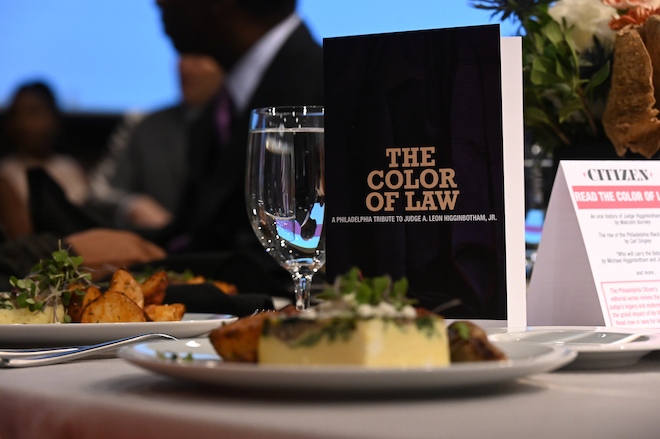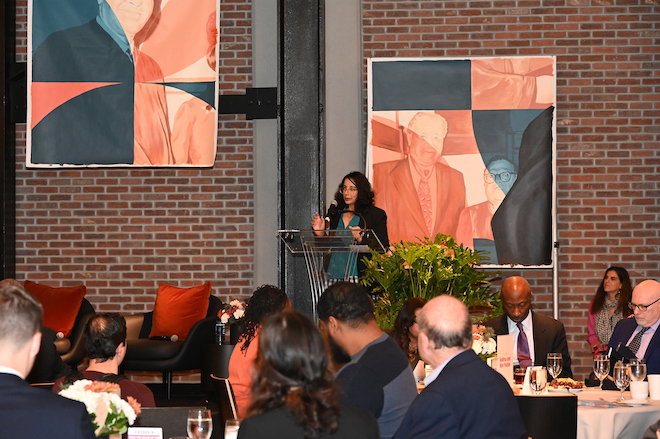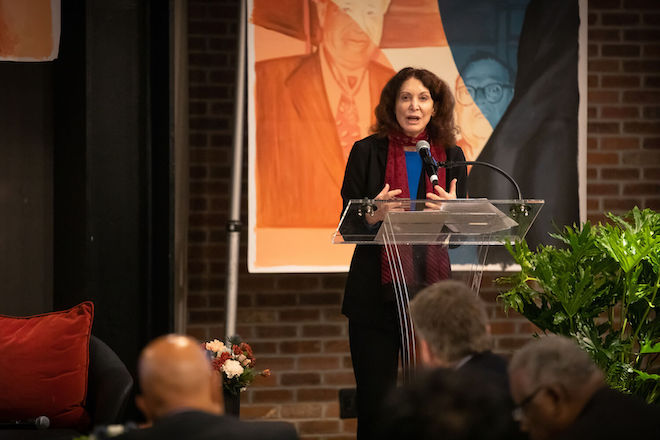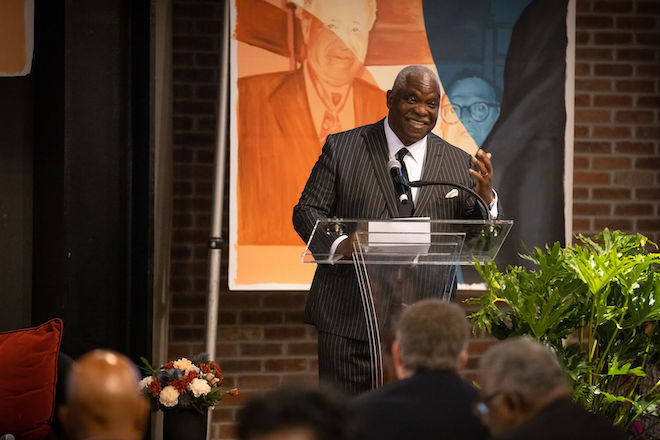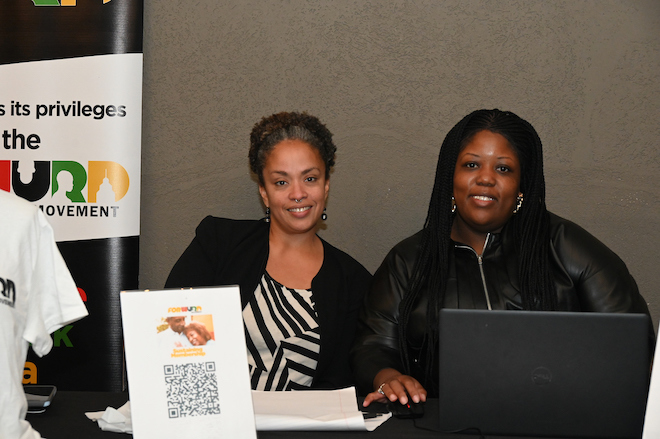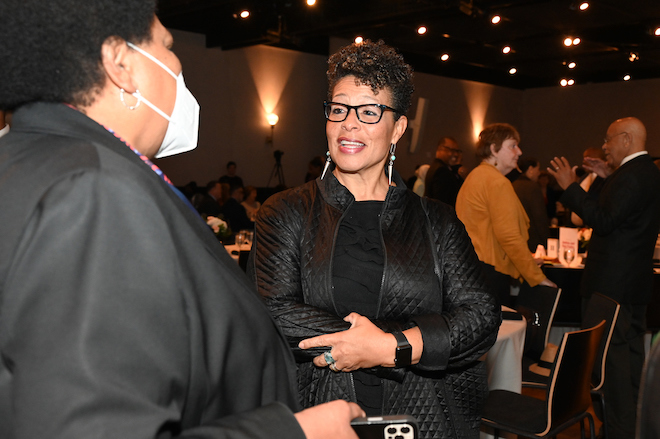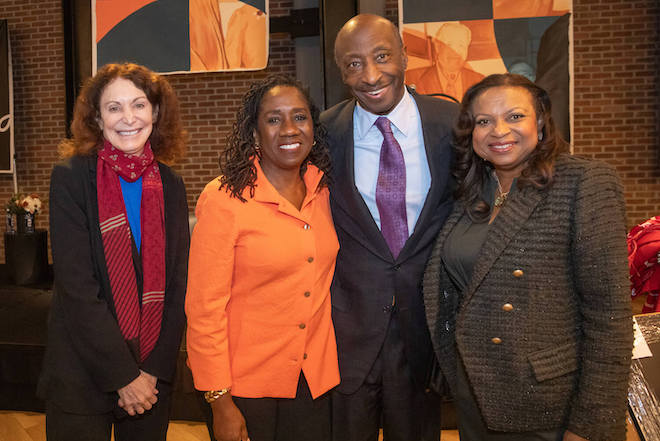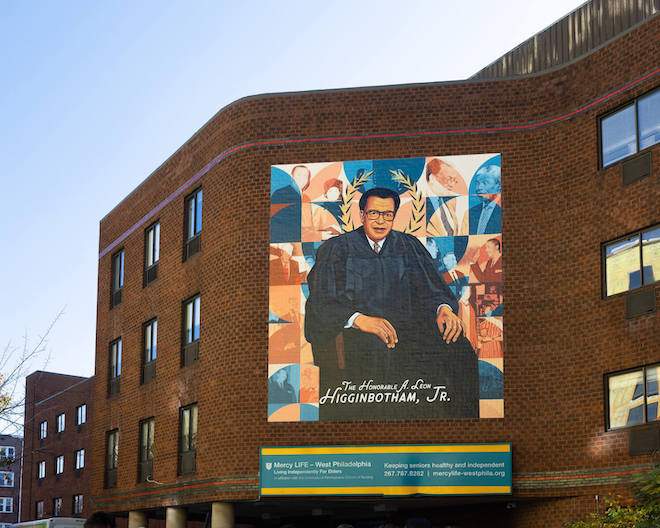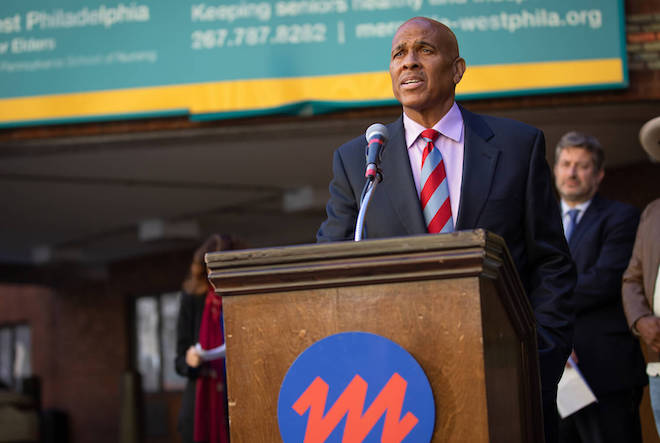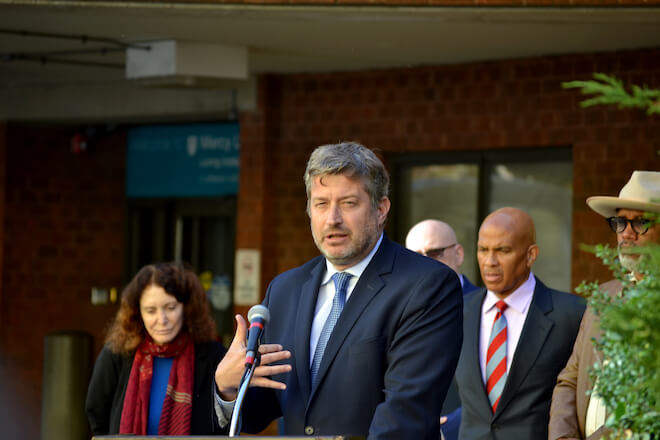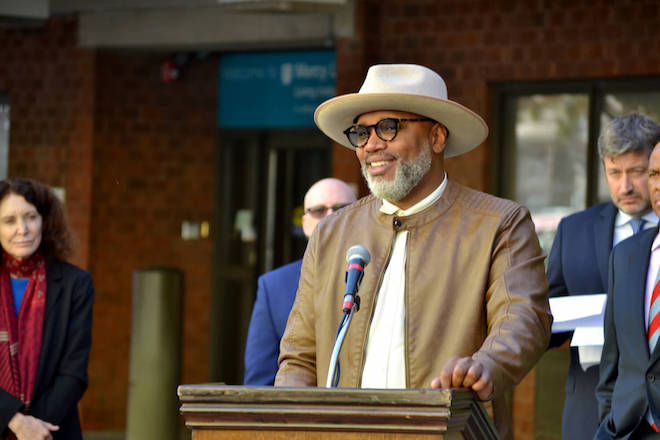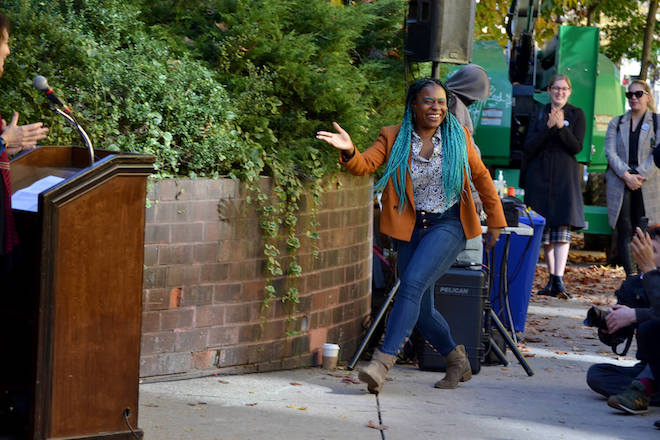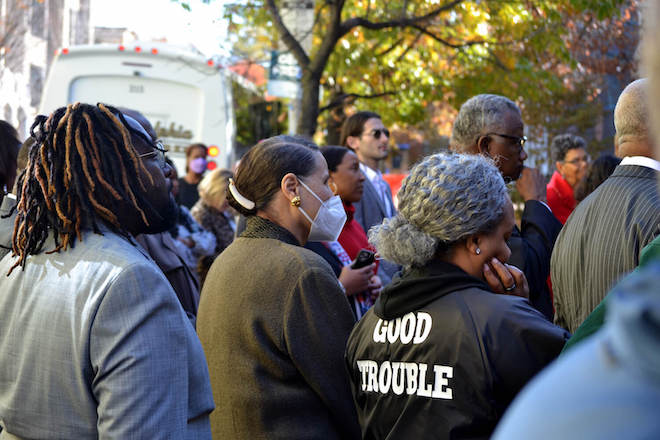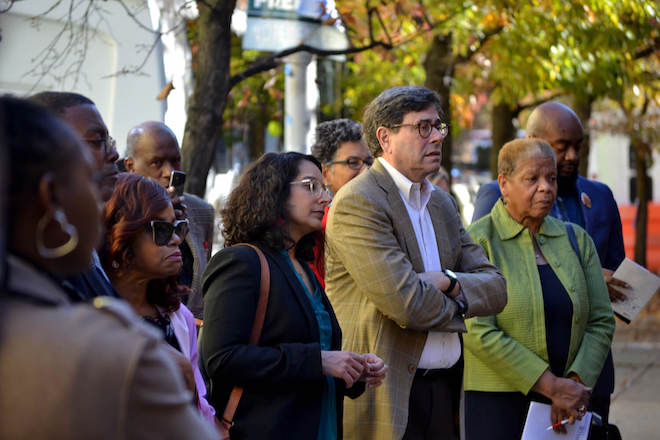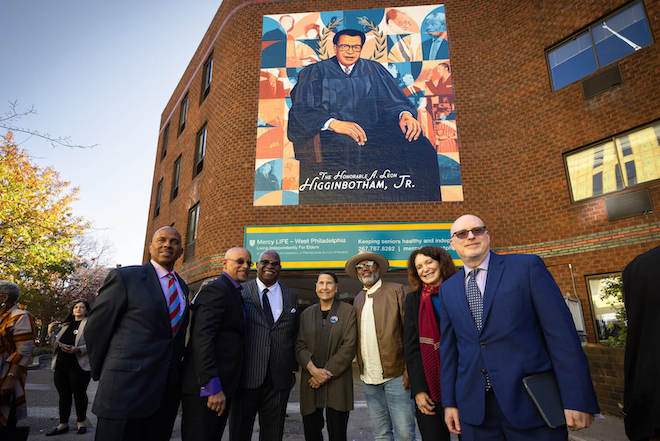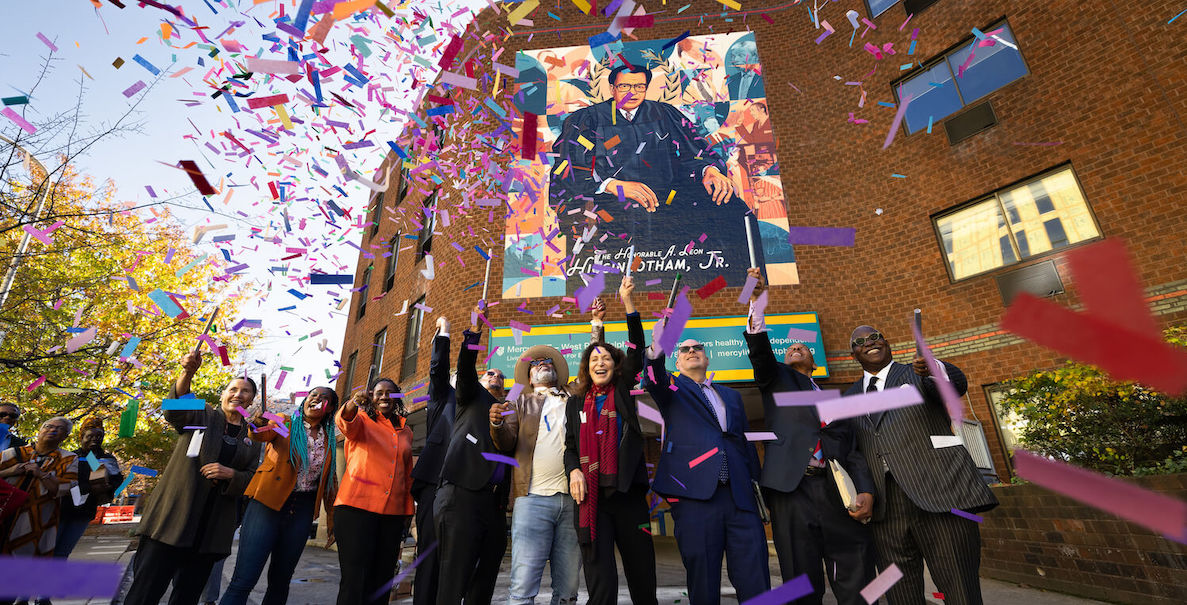It’s hard to pick the best moment from last week’s powerful tribute to the late Judge A. Leon Higginbotham, hosted by The Philadelphia Citizen, Mural Arts Philadelphia and Penn Carey Law School.
The whole morning — from a breakfast gala at the Fitler Club for some 200 people, to the public unveiling of the larger-than-life mural at 46th and Chestnut streets — was full of the kind of inspiring moments that defined Higginbotham’s life and that power his legacy 33 years after his death.
Watch the gala, with Chairman of the board and former CEO of Merck, Ken Frazier, and Ford Foundation Senior Fellow and past President of the NAACP Legal Defense Fund Sherrilyn Ifill, here:
Here are a few of the highlights:
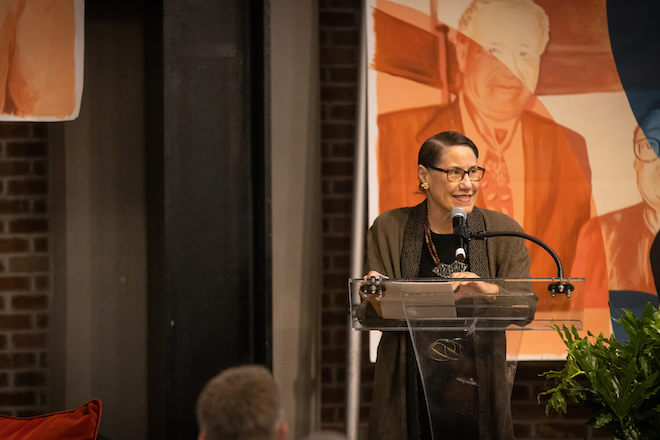
The late Judge’s wife, Evelyn Higginbotham, the Victor S. Thomas Professor of History and of African and African American Studies at Harvard University, talked of her husband’s struggles to find his place at a time when even Yale-educated Black lawyers could not find work. But she came back, time and again, to what she called his best qualities: courage and hope in a better world. “He fought until the day he died for justice and the rule of law,” she said.
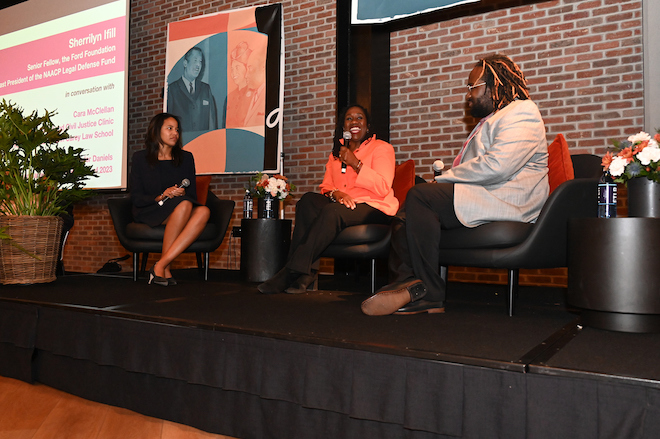
Sherrilyn Ifill, in a conversation with Penn Carey Law Professor Cara McClellan and Penn Carey Law Levy Scholar Tayler Daniels, talked of her former mentor’s fiery letter to Justice Clarence Thomas shortly after Thomas’s appointment to the U.S. Supreme Court. (Ifill urged everyone to read it, so we heeded her call and published the letter last week.)
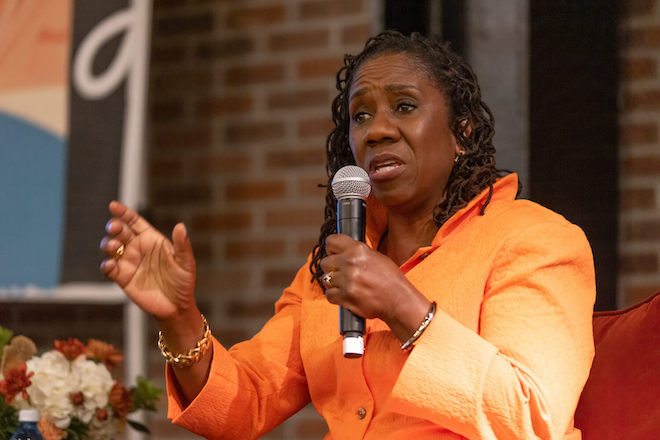
“It is not a screed; it is a piece of scholarship,” said Ifill, who was a young lawyer at Legal Defense Fund at the time. “It helped us all understand that we weren’t crazy, that we saw what was happening and we were clear about what was happening. But more importantly, if you wanted it, it was a lesson, a seminar … that one could take to understand the history of race and law in this country.”
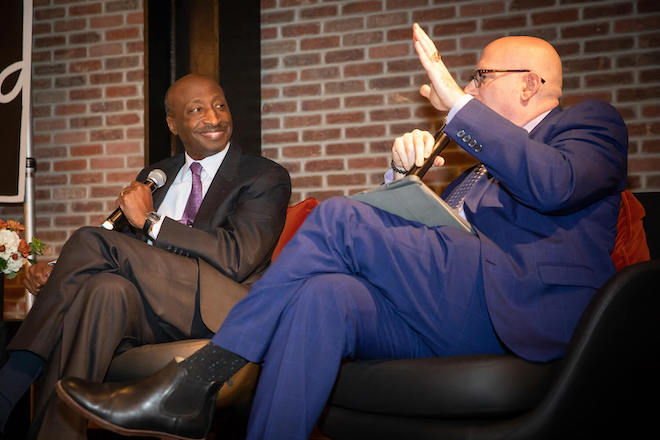
In a conversation with Citizen Co-founder Larry Platt, Ken Frazier recalled the background he shared with Higginbotham, both sons of laborers with three years of formal education. They rose to the pinnacles of their professions, but never forgot where they came from and who helped them along the way. (In Frazier’s case, one of those people was Higginbotham.) Frazier also the co-founder and co-chair of OneTen, a coalition committed to upskilling, hiring and promoting one million Black Americans into family-sustaining jobs.
“I became the CEO of Merck because the CEO three times removed decided he no longer wanted to have an all-White management team, so he hired me out of a law firm,” Frazier said.
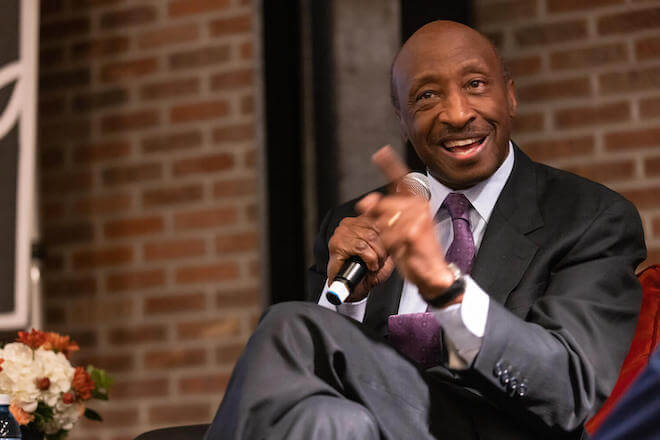
“Having had the experience of having people reach into my community, pull me out and give me an opportunity reminds me that I believe I achieved a lot in my life, but I didn’t earn the opportunity. None of us earns the opportunity in the first place. And as a country we have to make that opportunity widely available. Talent is broadly available; opportunity is not.”
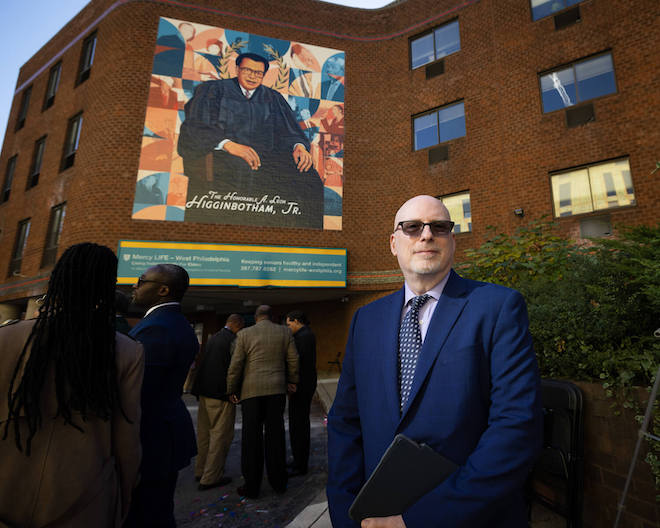
Platt had dreamed of a mural to Higginbotham for 15 years, something he finally saw come to fruition last week in West Philadelphia. As he said at the unveiling, he felt drawn to Higginbotham’s example of moral leadership, American values and a belief in the better angels that can come to rule in America.
“Every time Judge Higginbotham spoke or wrote, what he represented was the audacity of more, that we are this embryonic nation in a perpetual state of becoming,” Platt said. “Proving that thesis I think was the work of Leon Higginbotham’s life. It’s why he appealed to me so much.”
Watch the mural unveiling ceremony here:
Earlier in the morning, Evelyn Higginbotham told us that her husband often ended his speeches with the words of Langston Hughes, from his 1926 poem “Dream of Freedom.” That, then, seems a fitting way to end this piece as well, with words that resonated with Higginbotham and with our time:
Dream of Freedom
By Langston Hughes
There’s a dream in the land
With its back against the wall.
By muddled names and strange
Sometimes the dream is called.
There are those who claim
This dream for theirs alone —
A sin for which, we know
They must atone.
Unless shared in common
Like sunlight and like air,
The dream will die for lack
Of substance anywhere.
The dream knows no frontier or tongue,
The dream, no class or race.
The dream cannot be kept secure
In any one locked place.
This dream today embattled,
With its back against the wall —
To save the dream for one,
It must be saved for all —
Our dream of freedom!
See more photos from the event below:
